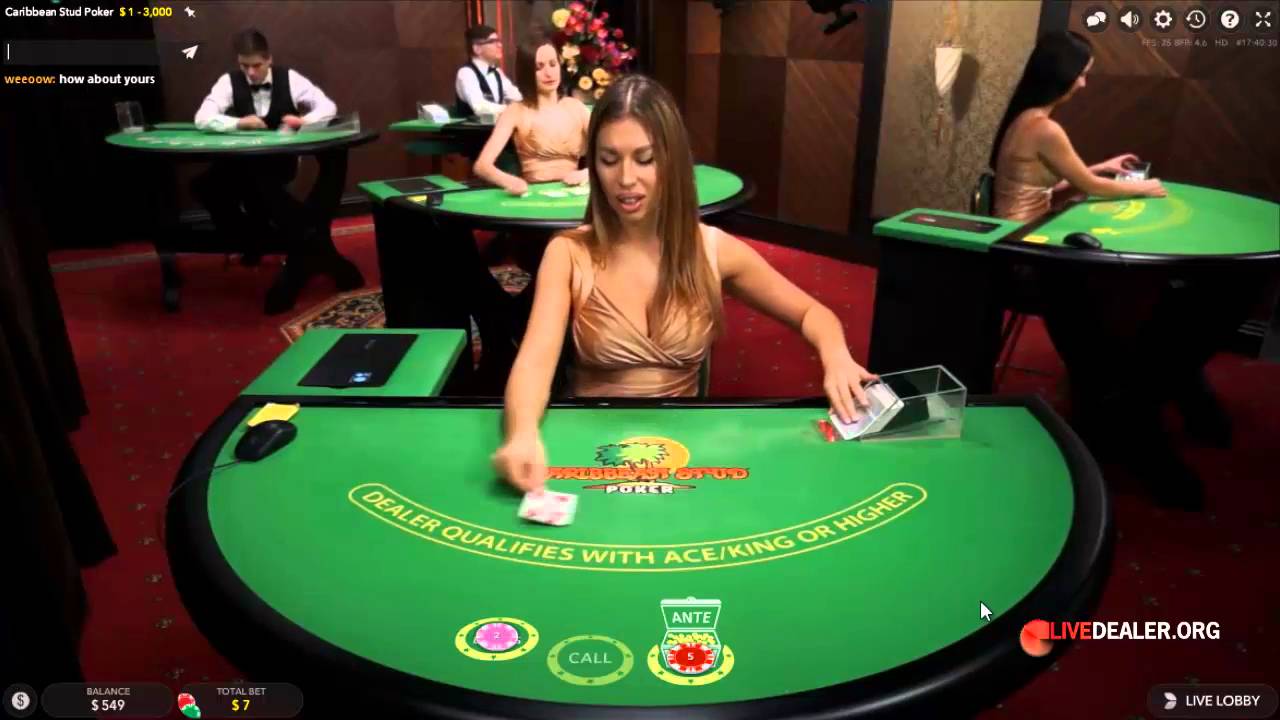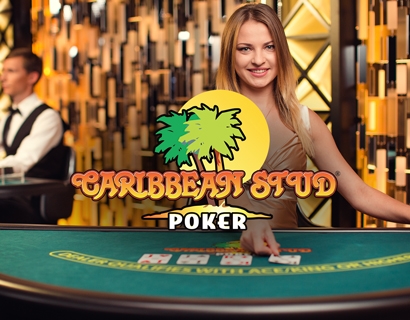Caribbean Stud Poker is undeniably one of the most renowned variations of poker played against the house. This captivating game appeals not only to casual bettors but also to poker enthusiasts who appreciate its fusion of familiar poker elements with a more relaxed and effortless gameplay experience.

The rules of Caribbean Stud Poker are refreshingly straightforward, as you’ll soon explore in this article. Its simplicity makes it easily accessible to newcomers, requiring minimal effort to grasp the fundamentals. While the game does incorporate elements of strategy and skill, it does not demand an extensive level of thinking, allowing players to enjoy the game with ease.
By following a few uncomplicated tips, you can swiftly approach optimal play in Caribbean Stud Poker. Its relative lack of complexity makes it an accessible and enjoyable option for poker aficionados of varying skill levels.
Rules of Caribbean Stud Poker
- Game Setup:
- The game is played with a standard 52-card deck.
- Each player at the table competes against the dealer, not against other players.
- Betting:
- Before the game begins, players must place an initial bet, known as the “ante”.
- Optional side bets, such as the progressive jackpot, may also be available.
- Dealing:
- Once all bets are placed, the dealer distributes five cards face down to each player and themselves.
- The dealer’s fifth card is dealt face up for all players to see.
- Gameplay:
- After examining their cards, players have two options: a) “Fold” – If the player decides their hand is not strong enough to compete, they can fold and forfeit their ante bet. b) “Call” – If the player believes they have a winning hand, they can make a call bet. The call bet must be double the size of the ante bet.
- Dealer’s Hand:
- Once all players have made their decisions, the dealer reveals their remaining four cards.
- To qualify, the dealer’s hand must contain at least an Ace and King. If the dealer’s hand does not qualify, players who made the call bet receive even money on their ante bet, and the call bet is returned.
- Winning and Payouts:
- If the dealer’s hand qualifies, the player’s hand is compared to the dealer’s hand.
- If the player’s hand is higher ranked than the dealer’s hand, the player wins even money on both the ante and call bets.
- If the dealer’s hand is higher ranked, the player loses both the ante and call bets.
- In the case of a tie, both the ante and call bets push (are returned to the player).
- The optional side bets have their own specific payout rules, such as the progressive jackpot for specific hand rankings.
Understanding the Payouts in Caribbean Stud Poker

- Ante Bet Payouts:
- If the dealer does not qualify (does not have an Ace-King hand), the player receives even money (1:1) on the ante bet, and the call bet is returned.
- If the dealer qualifies and the player’s hand beats the dealer’s hand, the player receives even money (1:1) on both the ante and call bets.
- If the dealer qualifies and the player’s hand ties with the dealer’s hand, both the ante and call bets push (are returned to the player).
- If the dealer qualifies and the player’s hand loses to the dealer’s hand, both the ante and call bets are lost.
- Progressive Jackpot Payouts:
- The progressive jackpot is an optional side bet in Caribbean Stud Poker, and the payouts can vary greatly depending on the casino or platform.
- Generally, the progressive jackpot is won when a player gets a specific hand, such as a royal flush.
- The payout for the progressive jackpot can be a fixed amount or a continuously increasing jackpot that accumulates over time.
Strategy to Achieve an 80% Winning Rate
Unlike many other games, Caribbean Stud Poker offers players a single crucial decision to make. Once you assess your initial hand, you must determine whether it is strong enough to continue or if it is wiser to fold immediately.
To make this decision, you can rely on the additional information provided by the dealer’s up-card.
While developing and memorizing precise numbers for Caribbean Stud Poker may seem daunting, the good news is that you can effectively employ two straightforward tips:
- Always play with any hand that contains a pair or higher.
- Always fold any hand weaker than Ace-King.
By adhering to this strategy, you only need to address one particular hand, namely Ace-King. This hand holds significant importance in the game, and having a solid strategy for it can help reduce the house edge.
Here’s a summary of the guidelines to follow when dealt Ace-King:
- If the dealer’s up-card is between 2 and Q, and you hold a card of the same rank, raise.
- Raise if the dealer’s up-card is an Ace or King, but only if you also have a Queen or Jack in your hand.
- If you have a Queen and the dealer’s up-card is lower than your fourth highest card, raise (e.g., if your hand is A K Q 9 2 and the dealer shows a 7).
By adhering to this simple and clear-cut strategy, you can ensure that your losses align with the house edge.
Introduction and Strategies for Other Casino Games:
<Baccarat – Master These 7 Top Strategy Tips for Online Beginners>



